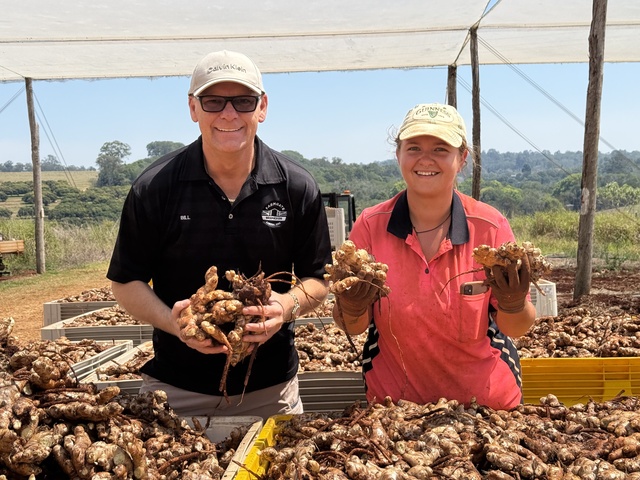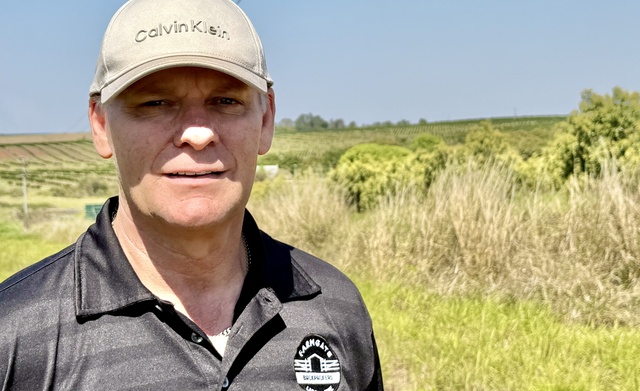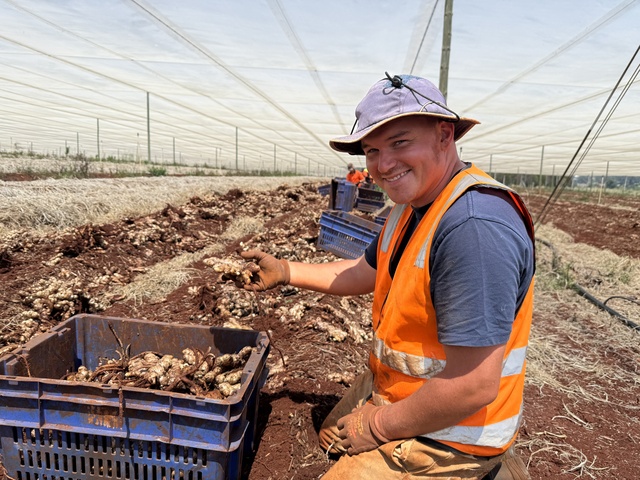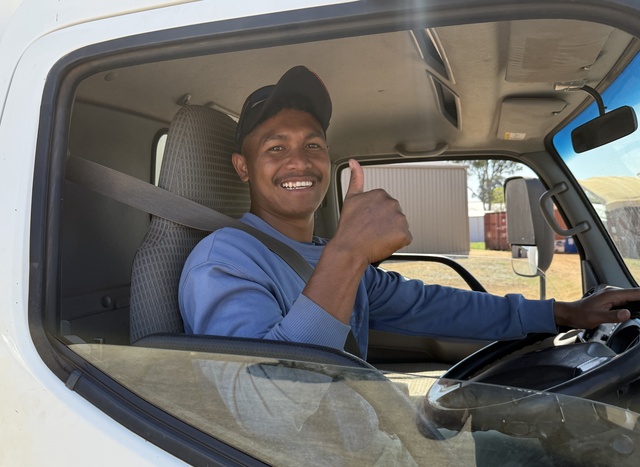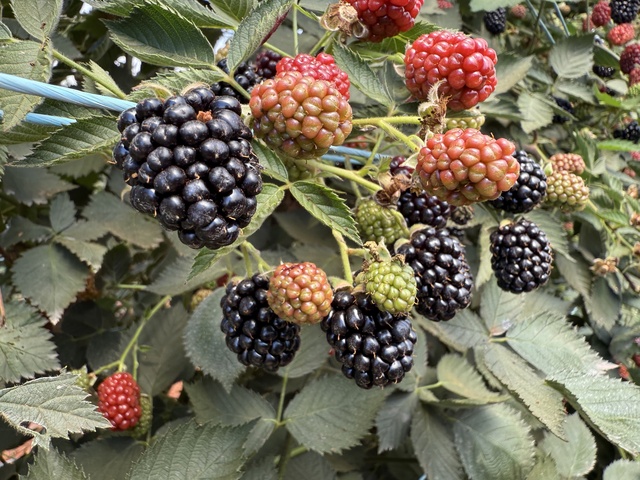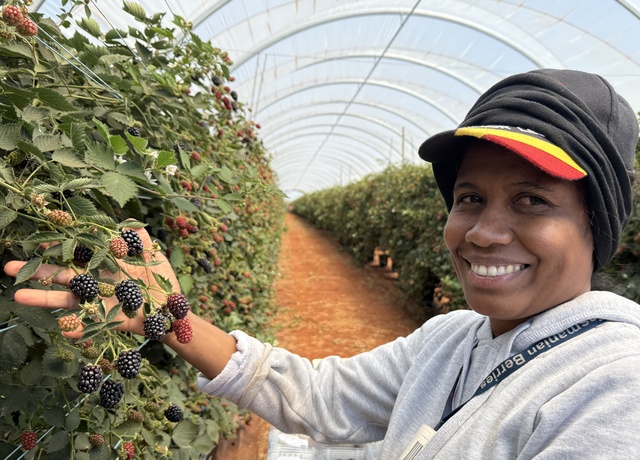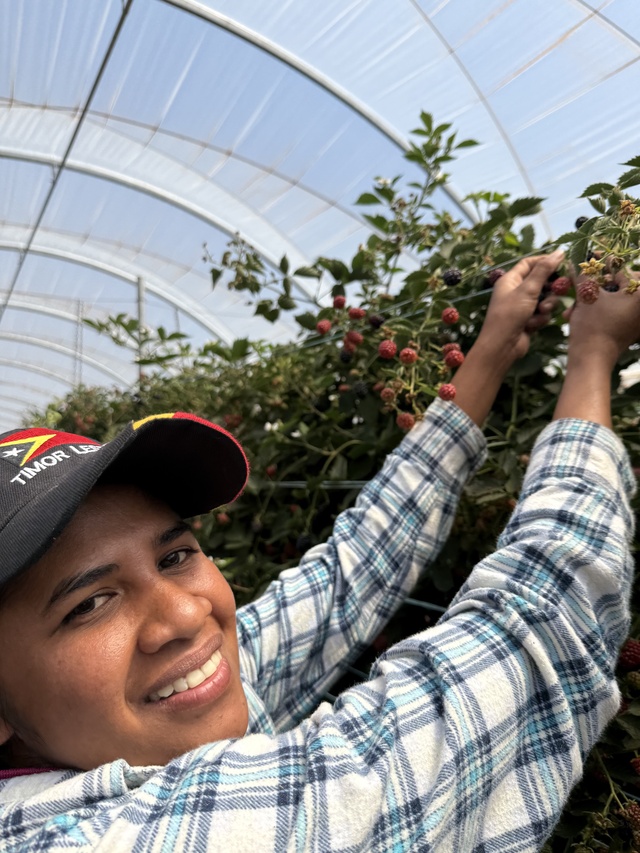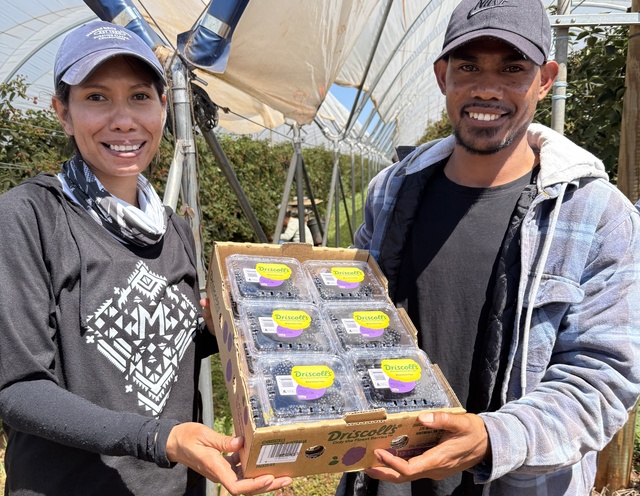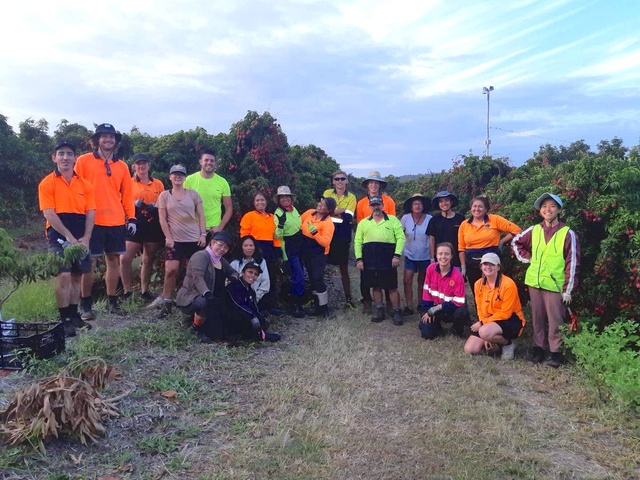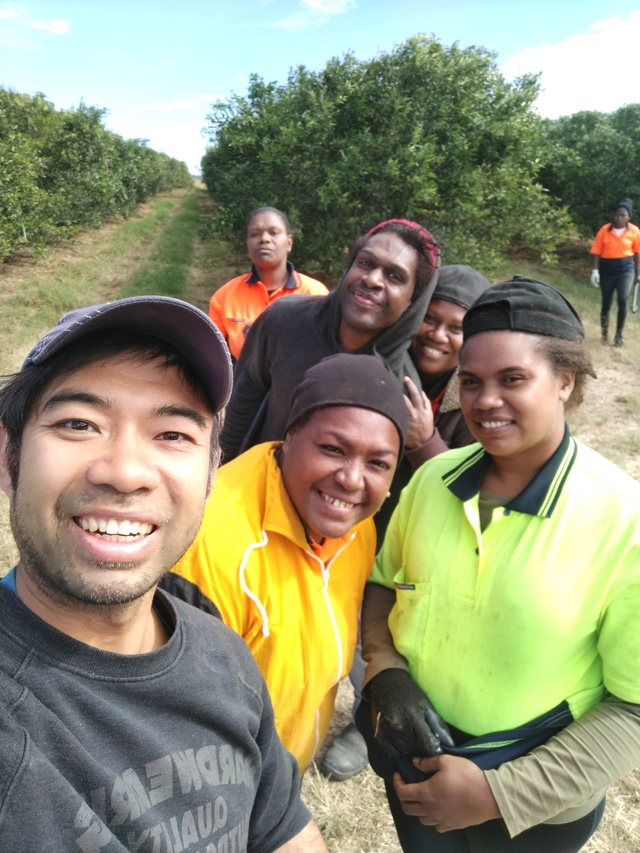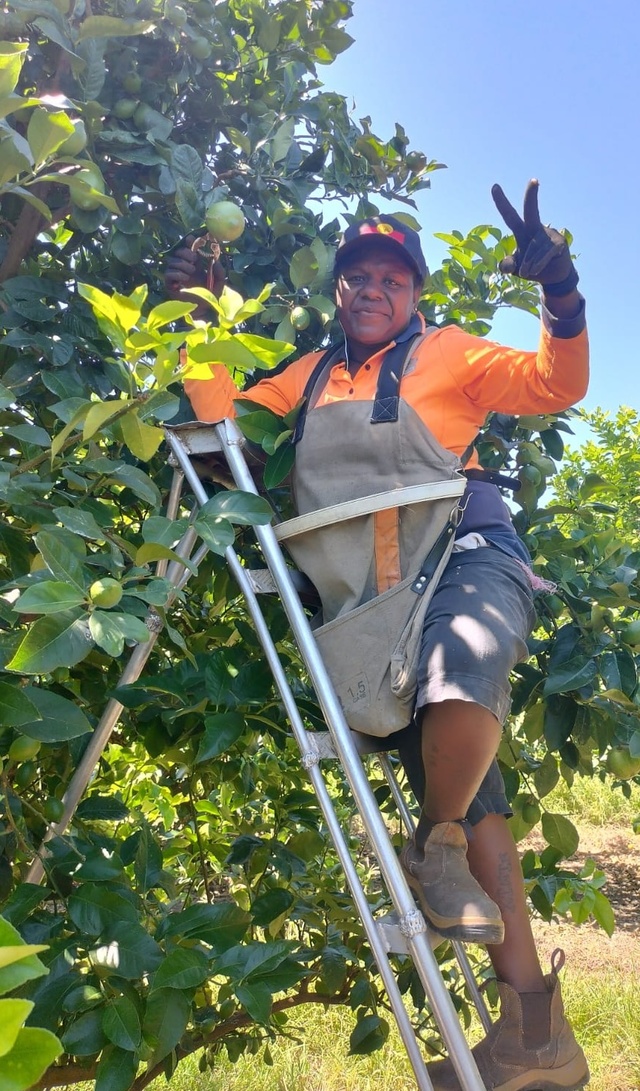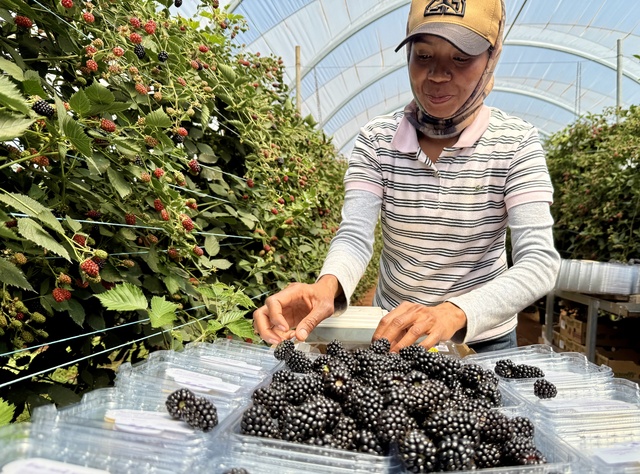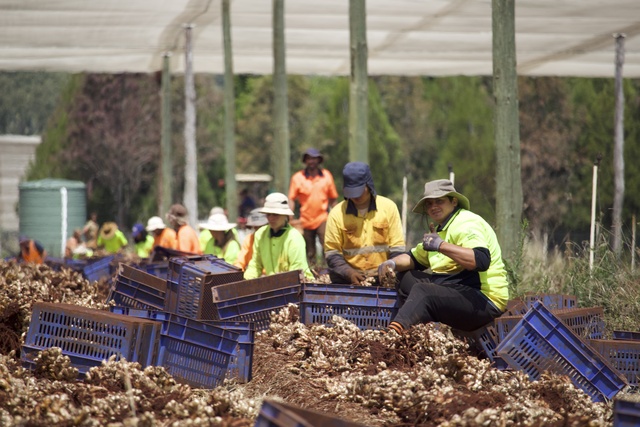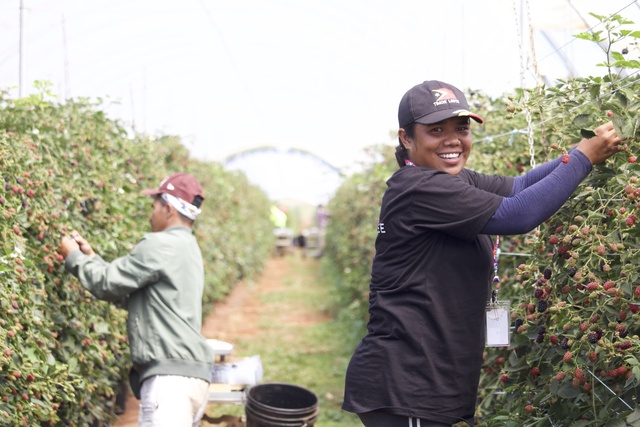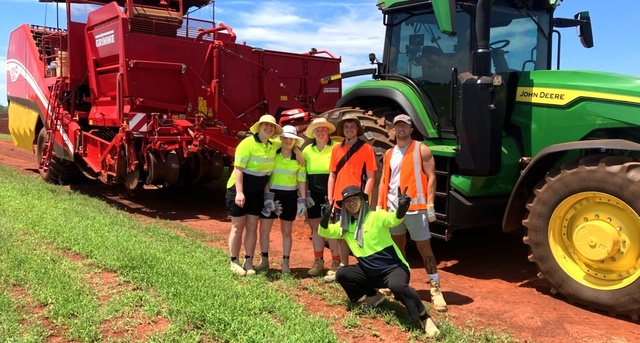At a time when the agriculture and horticulture industries are again experiencing issues in some southern mainland states, a Bundaberg operation is standing up for workers and farmers.
ERLE LEVEY goes to Childers to speak with Bill Darby of Farmgate Backpackers about the role integrity plays in ensuring crops are harvested in one of Australia’s most significant food bowls.
“It’s not such a big shift… You are still dealing with people and getting the same rewards of seeing them enjoy what they do.’’
“The standard you walk past is the standard you accept.’’
This famous quote by former Australian Army Chief Lieutenant General David Morrison emphasises that leaders and individuals must take responsibility to address poor behavior or declining standards, rather than allowing them to continue through inaction.
The agriculture and horticulture industries are again experiencing issues with the way overseas workers are treated in the mainland states of New South Wales, Victoria and Western Australia, according to national newspaper and on-line magazine reports.
However, a Bundaberg operation is standing up for the workers and the farmers.
Having caught up with long-term acquaintance Bill Darby at a University of the Sunshine Coast panel discussion on leadership, I was impressed by what he said about the role integrity plays in ensuring crops are harvested in one of Australia’s most significant food bowls.
Due to his switch from hospitality on the Sunshine Coast – for which he was awarded an Order of Australia Medal (OAM) together with community work – I went to Childers to talk more with Bill, who is director of Farmgate Backpackers.
The Covid pandemic that broke out in 2019-20 sent shockwaves through the agriculture and horticulture sectors, and nowhere more so than the Bundaberg region.
It is Queensland’s biggest food bowl, as well as being a highly significant player in supplying fruit and vegetables around Australia.
Bill was thrown in at the deep end, having taken over Farmgate Backpackers just a matter of weeks before the Covid lockdown.
That world-wide pandemic saw restrictions on travel in Australia, not just for residents but especially for overseas visitors and workers.
It was a matter of sink or swim for Bill, seeing the original Salad Bowl Caravan Park going from an occupancy of 280 down to 19.
Now, with have a fleet of about 20 vehicles, they run upwards of 400 workers every day to farms throughout the Bundaberg region.
“It was a huge investment,’’ Bill said. “And it certainly came as a great surprise when Covid came along because it was a complete disruption for the agriculture and horticulture sectors.’’
Anyone travelling north through Childers would have remembered the caravan park. There were choko farms at the back as well as paddocks of pineapples.
When The Palace backpackers hostel in town burned down 25 years ago that was a huge disruption to the area at the time – emotionally as well as logistically.
“With a government grant, accommodation for 70 backpackers was built on this site to compensate for the loss of The Palace.
“The backpackers have always been the lifeblood of this community since it’s been involved in agriculture … which has pretty much been forever.
“Before that, the Bundaberg region relied on South Sea Island workers coming here as well. Those workers were from many island cultures, including Vanuatu.
“I’ve been across there recruiting, and the elders remember fondly the times when their grandfather‘s and fathers worked in Australia all those years ago. They took back to Vanuatu the farming skills they learnt here.
“There was exploitation back then but I think there was exploitation of workers generally. Even if you were a sheep shearer going from shed to shed you were exploited.
“I don’t think people were treated so differently but because there were so many groups who came from across the South Pacific it was possibly highlighted.
“When they came here they didn’t have a common language so they formed one amongst themselves, and today that is still called Bislama. It is the most spoken language in Vanuatu, followed by English and then French.
“Bislama is the national language of Vanuatu and had its genesis here in Bundaberg.’’
Not many people know of the cultural alignment and the good that came out of that program, Bill said. Just like there’s a lot of good that comes out of the Pacific Australia Labour Mobility scheme (PALM).
The labour hire program allows Australian businesses to hire workers from Pacific Island countries and Timor-Leste for short-term and long-term positions to fill gaps in regional areas.
“There’s quite a few thousand that come here and to New Zealand. Without those workers we wouldn’t have a harvest because there’s no appetite here to do that work.
“The money for that work is repatriated back to their homes. The seasonal workers program is one of the biggest contributors to Vanuatu‘s GDP.’’
Bill spent more than 20 years on the Sunshine Coast, moving from real estate agency principal to managing student accommodation at UniSC and then resort management.
At first glance, moving into backpacker accommodation and labour hire was quite a change. Yet the management and leadership values remain the same.
“It’s not such a big shift,’’ Bill said. “You are still dealing with people and getting the same rewards of seeing them enjoy what they do.’’
Unfortunately there has been instances within the industry in Australia when farm workers have not been treated fairly or with respect.
PALM workers have the same rights and workplace entitlements as Australian workers, including minimum pay rates and leave entitlements, and employers must provide support and ensure appropriate living and working conditions.
Farmgate operates as a working hostel partnering with farms that grow a range of fresh produce including mangoes, lychees, sweet potatoes, citrus, avocados and ginger.
The rates of pay start with the Horticultural Award minimum but many of the jobs provide incentives to earn more.
“We only work with ethical farming partners who provide the opportunity to achieve the award wages,’’ Bill said.
“Farmgate provides safe and clean accommodation, where respectful behaviour of all residents is expected.’’
While Covid gave Bill a rocky start to Farmgate Backpackers, the pandemic was also a life raft in that it opened up new ideas and possibilities – not just for the business but for the Bundaberg region.
“It was just a matter of getting stuck into it and keeping the business afloat. With border closures nobody knew what was going to happen.
“We went headfirst into the Pacific Islander program and started bringing workers here on charter flights. They would spend a quarantine period on site to ensure there was no Covid transference.
“Something needed to be done … necessity is the mother of invention.
“We had to find a solution and the farmers needed to find a solution as well.
Farm work is not easy and especially in tropical conditions but willing participants have been found through backpackers and the PALM scheme that is being sponsored as a foreign aid program.
The first pilot program in Australia and in New Zealand was in 2012 and by 2018-2019 it was gathering momentum, especially in southern regions, Bill said.
“The Covid pandemic really gave us the opportunity to go to farms and say look: ’We’re going to give it a crack.
We have no other option.’
“Our business grew significantly because of the pivot, if you like, and by embracing Pacific Islander labour.’’
Driving out to a ginger farm to see workers, Bill said Childers was a very authentic town – a quintessential Queensland country town.
“It’s a lovely place to live and be a part of. A very tight-knit community where everybody knows the mechanic, the baker, the supermarket.
“We know each other by first name. It’s a very safe country town.’’
The level of agriculture and horticulture in the region is immense. Just like the sprawling sugar cane fields for which the region was famous, now there are vast macadamia, avocado, lychee and mango orchards, as well as vegetables such as capsicum, zucchinis, chillies and sweet potatoes.
Indeed, Bundaberg is the largest area in Australia for sweet potatoes with 85 percent of the annual crop grown here.
The ginger is grown under shade cloth sails due to the warm temperatures.
Yet Covid also saw the start of berry growing – an idea transplanted, if you like, from Tasmania. This has seen year-round production of raspberries, blueberries, strawberries and blackberries due to the two climates – winter harvest in Queensland and summer harvest down south.
Mangoes are still being planted as they are a really good complementary crop to avocados, Bill said.
“A good avocado grower will have mangoes because it’s a matter of following seasons. They go from one to the other.
“Mango picking starts here just after New Year’s Day and that will go through till late February.
“Then in early March we get our first varieties of avocados – the shepard avocado then in April we start haas and they run through till August.
“Macadamias are mechanically harvested but they rely on manual labour for pruning and eliminating mistletoe.
“We plant macadamias through our labour hire teams.’’
Bundaberg is the biggest area for macadamias and are native to the area.
The original g.nome for macadamia is traced back to the town of Bauple, Bill said, which is just south of Childers.
“They were originally called the bauple nut, and date back to the time of dinosaurs.
“Then they were renamed the Queensland nut but the Americans have since changed that to macadamia because of marketing reasons I guess.’’
Now there are big orchards in Hawaii, China and South Africa so it’s up to Australia to safeguard the brand of this native nut by being aggressive in its harvesting and marketing.
The growing area now extends from Bundaberg down to northern New South Wales because of the conditions – the soil, the climate.
The reason that berries have taken off in Childers is because of Covid. The Tasmanian growers are really big in that field but berries gained a large footprint in the Bundaberg region because of it.
“In Tasmania, the berry companies were all engaged with the seasonal worker program when Covid came and the borders were closed.
“The workers who were here, couldn’t be sent back so when the harvest finished the farmers had to think of something for the workers.
“It started through a connection we have on the Sunshine Coast – a hostel at Beerburrum, for berries mainly.
“We built a relationship with the Tasmanian berry companies to get their workers up here. We provided the accommodation because they couldn’t get their workers home to the islands.
“It wasn’t the normal come-and-go cycle of the seasons, so when they came up here we thought why don’t we start planting berries in spring as it would extend their season.
“Both in Bundaberg and Childers, there are berry farms that are less than three years old. They’ve come here in a big way because they are in a big way in Tasmania.
“They are moving workers between the two states. And that’s all with the PALM scheme with workers from principally Timor Leste and also Samoa and Tonga.’’
Childers and the Bundaberg region have rich soil, and the added benefit of irrigation from the Paradise Dam.
Farmgate has a Bundaberg hostel and a full year-round workforce to produce sweet potatoes.
Their business is also in Yandina, on the Sunshine Coast, with a full-time workforce for cherry tomatoes that are supplied to the major supermarkets.
The labour hire part at Childers was inherited as an aside in the purchase of the caravan park, but has turned out as the biggest part of operations.
With a background in business and hospitality, Bill has adapted well in dealing with people and finding them work.
“The backpacker sector – and with it accommodation and seasonal labour – has been marked with a background of exploitation over many years.
“People have been treated poorly because they are an exploitable cohort.
“We came at it from an angle of providing a high level of customer service, welfare and certainty.
“That was a breath of fresh air both from a grower’s point of view – for who we provide this labour force – but also from the backpacker and Pacific Islander point of view.
“We are providing the recruitment, accommodation, transport and welfare. It has enabled the business to grow far quicker than we thought, and has put a foundation to the farming sector.’’
You can grow anything, anywhere in the Bundaberg region, Bill said.
As for his own lifestyle, this was the best job in the world.
“Every day you come to work and you’re being inspired by the enthusiasm and the friendly faces, the positive attitude of travelling backpackers who love being here.
“They are coming from places where work is hard to find, where the weather can invariably be miserable, and the opportunities for advancement are limited.
“In Australia, they can have a working holiday with a system that allows the opportunity to earn money while they travel around the country – stay here longer and experience more of what there is to offer.
Working holiday programs and the PALM scheme are available for those wanting to work in Australia for up to three years by undertaking regional work.
The shift from resort hospitality to backpacker hostel and labour hire saw Bill utilise his ability to lead by example.
However, he readily admits to being able to recognise the need to be quick to seek advice on what he didn’t understand about farming.
“I didn’t dress like this on the Sunshine Coast. I used to wear suits.
“I didn’t know a farm from one end to the other, but I got involved in a business that I had no knowledge of whatsoever.
“Every single customer was from overseas and I came up here with complete naivety – but with enthusiasm.
“That’s all I had. I remember going out to my first appointment on a pineapple farm. They had five million pineapple plants – there were pineapples as far as I could see.’’
Finding work for those people not able to return home due to Covid was first on Bill’s list.
“I had no idea of what I was doing and yet the vulnerability that I showed – because I had to – was my biggest saviour.
“I didn’t lie about my naivety, and people will jump to help if you ask for some advice.
“I’m told it is okay, as leaders, to make mistakes, well honestly I’ve made a career out of that.
“You learn by saying that I don’t know exactly what I’m doing, but I’m absolutely passionate about it.’’
Good leadership comes when you are caring about the people around you, Bill said.
When working in teams and encouraging collaboration there is a need to get a balance of how others feel they are being heard and respected.
“The people affected by your decisions will honour your decisions if they respect you.
“They will do that if they trust you. It’s no different to anything else in life.
“It’s such an important thing to appreciate that people from different cultures, have different experiences and a different way of looking at things.
“Especially if they are non-English speaking. Besides, they may speak English but they don’t speak Australian.
“You need to articulate your thought process. If you have people around you who benefit from your ethics and values – which have to be spot-on and to never move from them – then people are attracted to that.
“If you have to make a decision that affects them in some way, then they will know it before you have made it because you are consistent and have communicated well.
“I have definitely benefitted from being a manager by dealing with people from other countries because you learn so much – whether Canadian or Peruvian, French or German, you are learning to be a much better communicator.’’
For Bill, it’s easy to be authentic when you’re being true to yourself. At Farmgate they have about 1000 working holiday visa holders coming through every year and wanting to extend their time here
“They love Australia. They want to do their farm work so they can get another visa.
“We get about 100 applications a week, and we accept five. The competition is enormous.
“When they come in they’ve had mixed experiences travelling around Australia. They get exploited in some places – they get treated terribly, they don’t get properly paid.
“They don’t understand their entitlements under our industrial award.
“The first thing we do is look them in the eye and say: ’You are here now, you are in our care.
“You don’t have to worry about work, we guarantee that.
“You don’t have to worry about safety, we guarantee it.
“You don’t have to worry about being disrespected because we have a cultural respect standard and it is not flexible. It is for everybody and it is an expectation.
“Anyone who shows disrespect, they get a tap on the shoulder and are asked to leave straight away.
“Everybody knows that they will be looked after and there will be someone taking care of them.
“We take care of them because we care for them.
“Our staff cannot help but see the authenticity that I provide because they are with me all the time, and they look up to that standard then mimic that.
“That’s exactly what I want them to do – to be honest.’’
Success comes in many forms, as Bill has found in his life and by dealing every day with a passing parade of workers and travellers.
If you have someone with nothing but the clothes on their back, no cars, job, no contacts and needs to live in a dorm room for three or six months, by definition they are not a successful person.
But Bill has found, especially during Covid, that if you bring in a beautiful bunch of backpackers for a wonderful experience then you cannot judge them by that socio-economic description.
“They are grateful, inspiring and positive because they have taken the opportunity to travel overseas. They are the ones who want to stay here … they love Australia and value their time here.
“They stay at hostels and meet other backpackers by getting out into the regions and experiencing country towns such as Childers and other farming communities.
“You will find them in the more remote areas, working in hospitality and tourism.
“They can work on stations and in regional towns, during which they get a good feel of what it’s like to be in outback Australia.’’
At the same time it gives Australian businesses in these remote areas access to skilled labour that they may not have had.
The travellers are coming from Ireland or France, Canada, Germany and Scandinavia with skills – it might be in restaurants or technology or retail.
“It could be anything,’’ Bill said. “They benefit from this but it also opens up the concept that these country towns benefit from other cultures.
“If nothing changes, nothing changes.’’
Indeed, where would our towns be without Chinese restaurants and pizza places? There is a need to look at new ways of doing things.
The way the farm workers have integrated into the community can be seen by the number of Pacific Islander and Timor Leste players involved with the South Kolan Sharks or the Isis Devils in the Bundaberg rugby league competition.
The clubs love their vibe and the way they show up to training, Bill said.
“On time, all the time. They just want to be there.’’
It’s the same with their work ethic.
With the berries, everything is picked and packed in the tunnels. The fruit goes straight into the trays and then into the cold room to retain freshness and reduce the chance of bruising.
Team manager Chloe Warren, from Maryborough and whose family goes back four generations, said it was so rewarding for the workers.
“They come in for nine months and go home for three months of the year. In those three months they are working just as hard at home, not just for themselves but for their families and friends.
“One built a house for her parents and herself. She has three children and for the time she is away then the grandparents, sisters or uncles and auntie‘s raise the children.
“Everything you see here is built by the people – these plants are their plants. This is their fruit. They have this connection that extends to the positioning of their plants.
“They know what they want their food to look like and how they want to pick it.
“They do their job there well, whether it’s doing maintenance or picking.
“They’re here to pick. They love to hear each other and their music.’’
The service the workers provide to the agricultural sector is something consumers are not always aware of, Bill said.
“Our role is to make sure that that sector always has reliable, healthy, motivated and suitable seasonal workers to get the harvests done.
“So many people don’t appreciate how much we rely on agriculture and how lucky we are to have it.
“They are incredibly hard workers. The pride they have is inspiring.’’
If the standard that you walk past is the standard you now have, a day with Bill Darby at Childers showed me the bar has been set at a new height.

